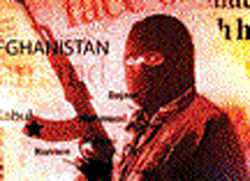
More than two months have elapsed since Bodh Gaya was rocked by serial blasts, but the suspense over who carried out the explosions in the holy town remains. Was it the handiwork of Myanmar-based Rohingya Muslims, or was it a secret design carried out by home-grown terror outfit Indian Mujahideen (IM)?
The National Investigation Agency (NIA), which is probing the explosions, is believed to have made some headway in this knotty case.
Recently, it showed the video footage of the CCTV installed at Mahabodhi Temple to arrested IM co-founder Yasin Bhatkal and his aide Assadullah Akhtar, alias Haddi.
Though the footage was somewhat blurred, the two, on seeing a tall and thin guy suddenly remarked, “Arey, yeh to Tehsin hai. (Oh, this is Tehsin)!”
Tehsin, alias Hasan, is said to be the main bomb-maker and planter groomed by the IM. The 20-year-old is originally from Samastipur in Bihar, and has been involved in the Hyderabad blasts case, besides carrying out terror attacks in New Delhi, Mumbai and Bangalore. The NIA is now looking for Tehsin, who gave the police the slip a fortnight ago.
On the midnight of August 28-29, when Intelligence Bureau sleuths, with the help of Nepal Police and Bihar Police, had nabbed Bhatkal and Haddi at Pokhra (Nepal) and were transporting them to Raxaul near the Bihar-Nepal border, news of his arrest had percolated to the media over the next few hours.
“Normally, the 24-hour period after such an arrest is crucial for interrogators, who can get the leads about absconding associates. But the media poured cold water on our plan. Bhatkal’s key aide Tehsin, who along with Waqas (who had planted bombs in Mumbai’s Zaveri Bazar) was then hiding in a flat on Attavar Road in Mangalore, got alerted and fled,” said an anonymous source in the Intelligence Bureau.
The NIA team is now hunting the fugitive IM operative, who is also now a suspect in Bodh Gaya blast case. It went to his parents’ place in Samastipur, from where it procured blood samples from his father for DNA tests.
The DNA will be matched with the “touch DNA” from a civara—the long, flowing and loose saffron robes worn by Buddhists monks—recovered from the blast site.